If you’re like most people who are considering quitting drinking, you probably want to know if medication for alcoholism helps with cutting down or staying abstinent. You might have asked your doctor about this, but most doctors are not experts in addiction medicine.
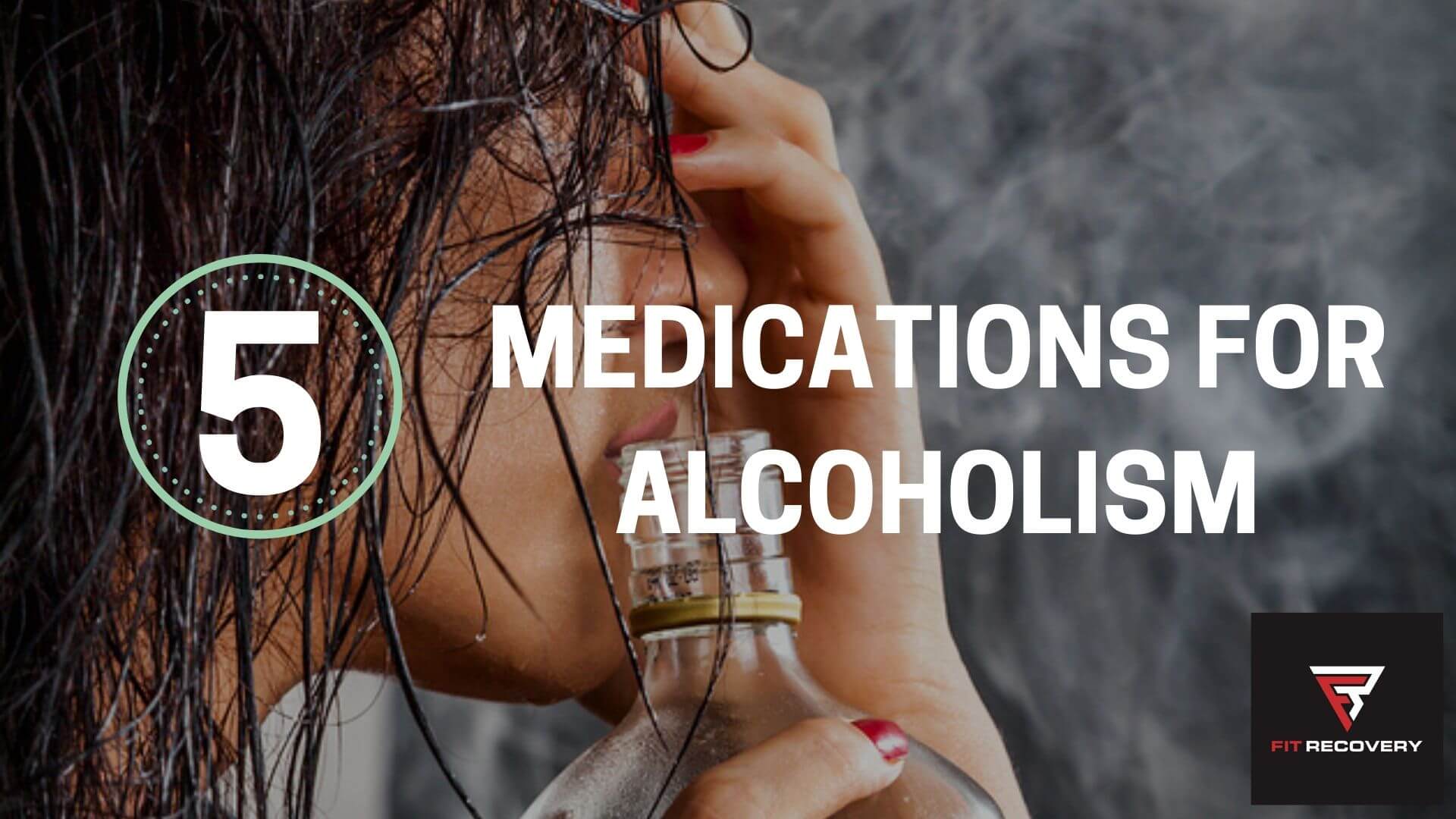
Alcoholism is such a brutal disorder that all options need to be on the table. Over 90% of people who attend mainstream treatment centers relapse within 6 months to a year. With that said, everyone responds differently to pharmaceuticals, and it is not necessary for everyone.
While alcohol withdrawal medications (e.g., benzodiazepines) are widely prescribed for alcoholics, few people know about treatment for alcohol cravings that might help them get past post-acute withdrawal syndrome (PAWS). In most cases, people who take these drugs can wean off of them once they get safely past the worst of PAWS.
The list of prescriptions below is not presented in any particular order. After reviewing some of the most common and FDA-approved options, this article will give an overview of some non-prescription alternatives, nutrient repair, and the importance of diet and lifestyle after quitting drinking.
Why Don’t We Hear About Medication For Alcoholism?
If you had diabetes, you’d probably be confused if your doctor failed to tell you about insulin and recommended a diabetes support group instead. There actually are diabetes support groups, and they probably help people – but you’d expect a medical expert to tell you about your medical options first.
So, why aren’t struggling alcoholics informed by doctors about all of the options above? Here’s an article that lends some insight:
It is still rare for a person struggling with alcohol to hear that medication therapy exists. This partly reflects the tradition of treating addiction through 12-step programs. It’s also a byproduct of limited promotion by the drugs’ manufacturers and confusion among doctors about how to use them.
Because our society sees alcoholism as a primarily spiritual matter, Big Pharma won’t allocate resources to promote treatments that have been clinically proven to reduce relapse statistics. (Research cited in the sections below.)
Even though a few older drugs have now been proven to help with alcohol addiction, their patents have expired. Drug companies have no interest in promoting them for alcoholism. There’s a lot more money in more socially acceptable pills for an ill – ADD medications for kids, statins for overeaters, and antidepressants for virtually everyone.
Since doctors receive most of their continuing education from pamphlets and seminars provided by drug companies, many of them are not well-trained in how to prescribe for addiction. (source)
5 Medications for Alcoholism
1) Naltrexone
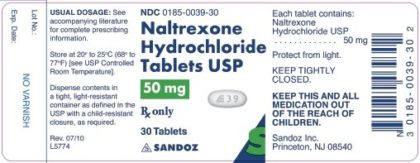
Naltrexone hydrochloride has been approved by the FDA to treat alcohol addiction since 1994.
Naltrexone is an opioid antagonist, meaning that it plugs the same brain receptors as opiates and endorphins (the brain’s natural pleasure chemicals). Instead of producing pleasurable effects, naltrexone sits in the receptor site and simply blocks pleasure chemicals from entering. Naltrexone therefore prevents drinkers from feeling pleasure when they drink.
Naltrexone taken along with abstinence shows only a small reduction in relapse rates. The mechanism through which naltrexone works requires both naltrexone and alcohol to be consumed, over the course of repeated episodes of drinking.
This process is called pharmacological extinction. Drinkers who use this method must take naltrexone before drinking for the rest of their lives to prevent rekindling their alcohol addiction. Many people who use this method voluntarily decide to quit drinking entirely.
Rehab centers in Norway and other parts of Europe have been known to use naltrexone with success rates of up to 80%.
Naltrexone for alcohol disorders is well-established in the scientific literature:
- A 1997 study found that when naltrexone was combined with therapy, only 35% relapsed, compared to the treatment industry standard of up to 90% relapse (source)
- In a 6 month double-blind, placebo-controlled study with 118 alcoholics, naltrexone was associated with significantly fewer heavy drinking days than the placebo (source)
- Out of 14 clinical trials conducted through 2001, only two failed to demonstrate the efficacy of naltrexone for alcohol disorders (source)
Does Naltrexone really work?
Although not everyone responds well to naltrexone, it has been shown to be a highly effective treatment.
Read more about naltrexone and alcohol addiction treatment.
2) Baclofen
Baclofen is a nervous system depressant and muscle relaxant that is widely prescribed for spasticity disorders, but has proven to be one of the most effective for addiction. Specifically, it helps alcoholics who are deficient in GABA.
Baclofen stimulates GABA receptors in a similar way as benzodiazepines. In contrast to these powerful drugs, dosage tolerance to baclofen does not build up over time to any significant degree. The use of baclofen for addiction was pioneered by a brilliant French-American cardiologist named Olivier Ameisen.
There is no incentive for American drug companies to spend money on clinical trials for baclofen because it is an old generic drug that cannot be patented. By contrast, tens of thousands of Europeans – including 50,000 in France alone – take high-dose baclofen for alcohol use disorders.
The effectiveness of baclofen for alcohol withdrawal and alcohol cravings is now well-established in the scientific literature:
- In a two-year study of 100 patients, long-term baclofen treatment caused an effortless decrease of alcohol withdrawal and post-acute withdrawal symptoms (source)
- In a 12-week study of 56 alcoholic patients receiving either high-dose baclofen or a placebo, 68% of those given baclofen remained abstinent, compared to 23% on the placebo (source)
You can learn more in about how to use baclofen for alcohol use disorders.
3) Gabapentin
Gabapentin, sold under the brand name Neurontin, is an anticonvulsant that works by increasing the production of GABA in the brain. In alcoholics, brain cells are often too damaged to perform this crucial function.
Some people use gabapentin for alcohol withdrawal and then taper off to avoid dependence. Others take gabapentin over the long term for alcohol cravings. Continuing to use gabapentin after alcohol detox has helped many alcoholics reduce the chance of relapse.
Gabapentin is not FDA-approved for addiction, but it is often prescribed to alcoholics off-label.
A number of studies support the use of gabapentin for alcohol withdrawal and cravings:
- In a 12-day study of alcoholics detoxifying with either gabapentin or lorazepam, the gabapentin group was less likely to drink – and had less craving, anxiety, and sedation (source)
- In a 12-week study of 150 alcoholics receiving either gabapentin or a placebo, the gabapentin group had significantly less insomnia, dysphoria, and alcohol craving (source)
- Gabapentin reduced alcohol intake for alcoholic rats but not for non-alcoholic rats, demonstrating its effectiveness for alcohol cravings by acting as a substitute source of GABA (source)
You can learn more in this article about how to use gabapentin.
4) Acamprosate
Acamprosate is FDA-approved to help alcoholics manage post-acute alcohol withdrawal syndrome. It is usually sold under the brand name Campral.
Acamprosate may help to ameliorate post-acute withdrawal syndrome, with a notable impact for some people on anxiety and alcohol cravings. It does this by stabilizing brain chemicals involved in alcohol withdrawal. Specifically, it is thought that acamprosate reduces glutamate activity in the brain.
Acamprosate is typically prescribed for 3-12 months following the cessation of acute withdrawal symptoms. In contrast to naltrexone, which blocks the pleasure that drinkers obtain from alcohol – or Antabuse, which causes nausea when alcohol is consumed – acamprosate relieves the intense sensation of stress that leads many alcoholics back to the bottle.
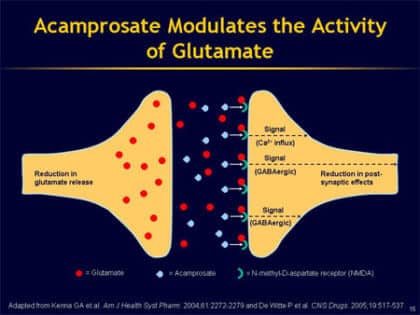
In Europe, acamprosate had been used with apparent success for decades before it was approved in the U.S.
- A critical review of acamprosate alcohol treatment studies found that acamprosate increases abstinence rates, reduces treatment costs, and produces superior results compared to group support alone. (source)
- A comprehensive meta-study of 17 trials consisting of 4,087 patients from 13 countries found that 36% of individuals receiving acamprosate alcohol treatment and 23.4% of individuals receiving placebo remained abstinence at 6 months. (source)
- In a one year study of alcoholics in real-world conditions, 540 individuals who received acamprosate alcohol treatment were found to have a 33.6% abstinence rate compared to 21.6% for 274 individuals who received only psychosocial support. (source)
You can learn more in this article about how to use acamprosate.
5) Topamax
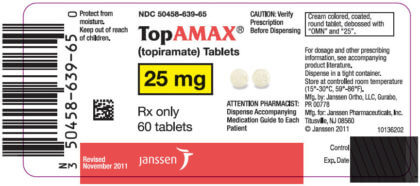
Topamax (topirimate) is an anticonvulsant and anti-epileptic that has powerful neuro-protective properties. It is not FDA-approved for addiction, but it has shown great promise for this purpose.
Topamax works primarily by balancing GABA and glutamate levels. It also removes excess dopamine that is released by alcohol. As a result, heavy drinkers who consume both Topamax and alcohol feel compelled to drink significantly less.
Like naltrexone, Topamax can help people who are still drinking. Like gabapentin, people can use Topamax for a short period to reduce alcohol withdrawal symptoms or for a longer period to deal with alcohol cravings and avoid relapse.
Since the patent for Topamax expired, there is no financial incentive for drug companies to pursue approval to market Topamax for alcohol addiction.
Still, a number of studies support the use of Topamax for alcohol withdrawal and cravings:
- Detoxing alcoholics who received up to 75 mg of Topamax had fewer alcohol withdrawal symptoms in the 7-10 days following drinking cessation, and significantly fewer relapses in the 4 weeks following treatment, than patients who received only therapy (source)
- In a 4-week study with 371 participants, half receiving placebo and the other half receiving Topamax, the Topamax group had significantly fewer drinking days (source)
- Low dose Topamax reduces alcohol cravings, anxiety, and depression during acute withdrawal (source)
You can learn more in this article about how to use Topamax.
Alcohol Abstinence Medication – Antabuse
Antabuse (disulfiram) became the first of the current three FDA-approved treatments for addiction in 1951. It provides no symptom relief or normalization of brain chemistry. Instead, it produces severe side effects (nausea, vomiting, intense pain) when it is taken in conjunction with alcohol.
Antabuse works by blocking the enzyme in the liver that breaks down acetaldehyde, a toxic byproduct of alcohol. In recent years, Antabuse has often been either replaced by or prescribed in conjunction with the other two drugs that are FDA-approved for treating addiction: naltrexone and acamprosate.
Antabuse is a favorite of 12-step rehab centers because it has no potential for abuse. It basically serves as a severe biochemical punishment for failing to work The Program.
Scientific research on Antabuse is mixed:
- A study with 243 patients receiving either Antabuse, acamprosate or naltrexone found that the Antabuse group avoided alcohol for a longer duration and had fewer drinking days overall (source)
- A scientific review of studies performed on Antabuse concluded that the most significant reduction of relapse rates occurred for shorter duration studies, or those lasting less than 12 months (source)
- A 6-week study consisting of 605 US veterans found that Antabuse reduced drinking days compared to placebo, but that there was a very high rate of noncompliance (source)
Not surprisingly, Antabuse does tend to reduce relapse rates, but only over the course of short periods and/or in the presence of forced compliance. It is ineffective for longer durations without forced compliance.
You can read more about Antabuse in on the Antabuse-alcohol reaction.
Alcohol Withdrawal Medication – Benzodiazepines
Benzodiazepines are commonly used for alcohol withdrawal symptoms in hospitals, detox centers, and for patients who can be expected to safely detox at home.
Benzodiazepines powerfully stimulate GABA receptors and thereby reduce anxiety, prevent convulsions, and help with sleep. Because they vary in terms of strength and their length of effects, doctors choose between them depending on the patient’s symptoms. These drugs are usually prescribed only for a short duration to prevent tolerance, which builds quickly.
Despite the risk of addiction, some former alcoholics are able to use benzodiazepines for situational anxiety or occasional insomnia.
You can learn more about benzodiazepines in the articles below:
- How To Use Ativan For Alcohol Withdrawal
- How To Use Librium For Alcohol Withdrawal
- How To Use Klonopin For Alcohol Withdrawal
Further Considerations: Diet & Lifestyle Matter!

Treatments can save lives by improving quality of life and serving as a temporary crutch while other adjustments are made.
But they do not enable people to understand, address, and prevent the root causes of disease.
The root causes of addiction are complex. Genetic factors and environmental factors make some people more susceptible to becoming dependent on alcohol. Once dependence occurs, excessive alcohol consumption creates deficiencies in nutrients and neurotransmitters that people need to feel good.
Alcohol doesn’t merely create deficiencies. It exacerbates already-existing deficiencies that may have served as catalysts for alcohol use disorder in the first place. Addressing the root cause of addiction requires supplementation with vitamins, minerals, amino acids and other nutrients that are vital for the normal functioning of the brain-body system.
Biochemical restoration also requires maintenance of this system through healthy lifestyle habits, such as sufficient sleep, stress management, and regular exercise.
The following articles can help you learn more about how to get started building your brain-body system from scratch:
- Top 20 Supplements For Detox And Recovery
- Body Repair After Quitting Drinking
- Top 10 Ways Exercise Rewires Your Brain
- How To Sleep Better After Quitting Drinking
- Top 20 Liver Detox Foods
- Alcoholism And Hypoglycemia
- Alcoholism And Hypoglycemia
In case you’re skeptical about supplementation, check out our favorite reaction to an anti-vitamin editorial influenced by Big Pharma. Dr. Rhonda Patrick has a PhD in biomedical science.
Functional medicine is a growing domain of expertise that addresses the underlying causes of chronic disease. For nearly every disease including chronically relapsing addiction, root causes usually include lifestyle maladies, diet problems, and nutrient deficiencies.
Conclusion
It may not work for everyone, but the failure to beat alcoholism can be fatal. At Fit Recovery, we believe that you deserve to know about every option out there.
If you’re suffering from severe addiction, it’s important to find a doctor who can advise you about the full range of possible treatment options. If you’re lucky enough to be stuck with mild to moderate alcohol dependence, rest assured that the articles on here Fit Recovery can make your life much easier going forward!
Subscribe to the Fit Recovery email list and learn how to transcend alcohol forever.
If you have any questions, feel free to post them in the comment box below.
___________________________________
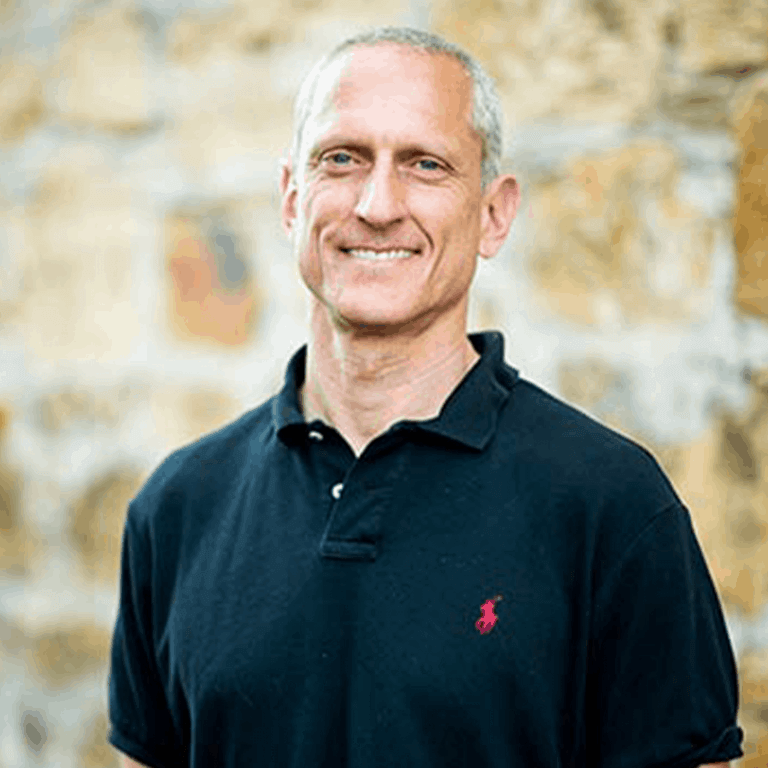
Dr. Ken Starr is board-certified in both Addiction Medicine and Emergency Medicine, and diplomate of the American Board of Addiction Medicine. In addition to his work as the Addiction Medicine Director for Fit Recovery, he operates Ken Starr MD Wellness Group in Arroyo Grande, CA. His clinic offers advanced drug and alcohol detox methods, long-term recovery facilitation, and IV nutritional programs including NAD+ therapy.
FAQ:
What medications reduce the desire to drink?
There are three approved by the FDA to treat alcohol use disorder: acamprosate, disulfiram, and naltrexone. Others that are used off-label for reducing the desire to drink include baclofen, gabapentin, and topiramate.
Is there a pill that makes you sick if you drink alcohol?
Disulfiram, which is sold under the brand name Antabuse, is a pill that causes severe illness when a person drinks. Even a few drops of alcohol, or contact with alcohol-containing products like perfume, can spark an adverse reaction. Research on the effectiveness of disulfiram for alcohol cessation is mixed.
What can help me to stop drinking?
Alcohol dependence is a brain disorder reinforced by repetition, belief systems, and biochemical imbalances. Restoring balance to the brain and body is crucial for overcoming addiction. Enlisting social support, establishing healthy new activities and routines, reexamining faulty belief systems, and healing from emotional trauma can also help you to leave alcohol in the past.

Author
-
Dr. Ken Starr is board certified in both Addiction Medicine and Emergency Medicine, and diplomate of the American Board of Addiction Medicine. In addition to his work as the Addiction Medicine Director for Fit Recovery, he operates Ken Starr MD Wellness Group in Arroyo Grande, CA. His clinic offers advanced drug and alcohol detox methods, long term recovery facilitation, and IV nutritional programs including NAD+ therapy.
View all posts






I don’t know where to start with nutrition repair, please could you recommend the best supplements, to get started, I have got headaches and no energy. Look forward to hearing from you
Kind Regards
Hi Damian, my article on vitamins for alcohol withdrawal is a helpful start for nutrient repair. Good luck to you!
The first time I detoxed from alcohol at home I didn’t know you could die from withdrawal. I went through an entire night of vivid hallucinations (later to learn it was in fact delerium tremens), and had no idea what was going on. Once I learned I could’ve died and that there were medications to take that could help, the next time I was in that situation I drove myself to the ER (I had good insurance). They hooked me up to an IV bag of water with nutrients such as B-vitamins, electrolytes, and much more. Plus this gave me… Read more »
Thanks for sharing this Matt! Your experience is insane, and luckily we can all learn from it.
I’m glad that I only had to briefly use medications for alcohol withdrawal (Ativan to be exact). I absolutely feel my best without drugs in my system.